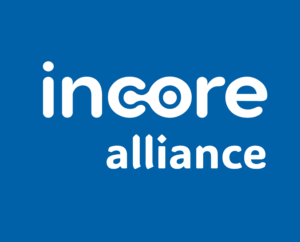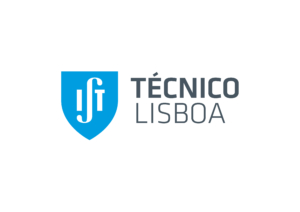Instituto Superior Técnico (IST) is a public school of engineering and technology, part of University of Lisbon. It is the Coordinator of INCORE, has experience in leading and participating in EU projects, high in innovation and entrepreneurial capacity for the average standards, will act partly as a role model for the ORs HEIs, partly to develop its own entrepreneurial capacity. Leads WP1 Management and leads the following tasks: project coordination, management and reporting; project meetings, risk, data and IPR management; Action Plan and roadmaps to implementation; follow up of actions, impact assessment and recommendations. As coordinator, IST will ensure that the project’s tasks, deliverables and outcomes are met in due time and work is in line with the Agreement. Such tasks include the overall project planning and progress monitoring, internal communication assessment and risk management. IST participates in the implementation of all remaining project tasks, including improving SMEs access to IST research infrastructures, testbeds, and laboratory facilities and an improved understanding within IST departments of SMEs perspectives and capacity requirements to turn innovations into marketable products and services. IST involves the departments of 1) Civil Engineering, Architecture and Georesources and 2) Engineering and Management.
Université de La Reunion (UR) is a partner from the OR of La Reunion, will be responsible for the coordination of WP2 Setting the stage and leads the task on Institutional capacities and information exchange, and Development of individual actions, by setting up a high-tech innovation hub especially designed for the support of young startups in manufacturing and digital technologies. UR participates in the implementation of all remaining project tasks, with special focus on delivering simplified IPR processes and a simplified legal framework for supporting cooperation with start-ups. UR will also launch a detailed mapping of the innovation ecosystem of the participating HEIs, in order to better understand the opportunities and bottlenecks on the level of the HEIs. UR will work towards bringing new technologies to innovation with local SMEs and develop future entrepreneurs’ abilities in prototyping. A specific Fablab/innovation hub will be created based on the identified needs. Specific agreements will be set with local SMEs allowing them the use of the facilities, resulting in improved conditions for conducting demand-driven research and education activities at UR. UR departments include 1) Sustainable Construction and Energy, 2) Food Engineering and 3) Information Technology and Telecommunications
Universidad Europea de Canarias (UEC) represents the Canary Islands HEIs and leads the task on Training and mentoring programmes, and Training programmes for young entrepreneurs and start-ups. Under the leadership of UEC the available entrepreneurship contents and methodology will be compared, discussed and best practices will be exchanged between the institutions. The final curriculum will be based on real-life experiences by successful business owners complemented with more generic information on entrepreneurship. The developed courses will support the setting up of a strong network of potential entrepreneurs in the ORs, trained to succeed in this particular environment taking into account the regions’ common and unique challenges and potential. The innovation hub and startup support services set up by UEC will focus on social entrepreneurship and business management in support of business domains relevant for blue growth of the Canary Islands driven by the concept of “Technological uprising and social revolution”. The Hub will reinforce students’ social and ethical values, entrepreneurial spirit, necessary for a change in local and regional “islands mentality”. UEC brings the departments of 1) Social Sciences and 2) Architecture.
Representing the Madeira archipelago, Universidade da Madeira (UMa) leads the WP3 (Action!) and the tasks on Contextual analysis of the regional innovation environment, and Development of joint actions for transformational change. UMa participates in the implementation of all remaining project tasks, with special relevance for WP2 (Setting the stage) and WP3 (Action!) implementation as described in the proposal. UMa will oversee the deployment of the INCORE IVAP with a long-term view towards increasing the capacity of HEIs to better integrate with their regional innovation ecosystems. Each partner will be responsible for their institutional implementation and changes but their work will be coordinated by UMa in the tasks and objectives they want to achieve. Whilst the individual actions and priorities may differ, they will be implemented with the help of in-house innovation hubs to be set up as single entry points supporting entrepreneurship and SME-HEI cooperation. The innovation hub and corresponding services to be set up at Madeira will be transversal, supporting several departments. The UMa hub priorities: “Management network center towards a sustainable development” are based on: 1) Ecopreneurship, 2) Green Accounting and Sustainability Finance, 3) Innovation towards Sustainability and Digital and 4) Social Sustainability and Inclusion. UMa brings 1) Higher School of Technologies and Management and Faculties of 2) Exact Sciences and Engineering, and 3) Social Sciences.
Member of two KICs, La Palma Research Centre (LPRC) has extensive experience in technology transfer, establishing links with universities and other actors of the knowledge triangle and in communication, dissemination and exploitation actions. As a private research centre, it will lead WP4 (Communication and dissemination), and corresponding tasks of Communication and dissemination management, Outreach material, and the ORs Knowledge Triangle Cluster. LPRC will also support the implementation in all other WPs.
Trisolaris Advanced Technologies (TAT) is a Start-up, small-scale manufacturer of advanced hardware and robotic components using novel materials and out of the box solutions to address customer requirements. TAT is actively seeking cooperation opportunities with university departments for the purpose of distributed, small scale manufacturing of robotic components and rapid prototyping of pre-commercial tools and products. As such, TAT will serve as a case study of a start-up SME seeking to engage in a meaningful cooperation with HEIs. TAT will co-create new products and services with universities, delivering feedbacks on real-life experience and recommendations on the process to INCORE. Leads the task on Development of new modalities for HEI-SME cooperation, and supports the implementation in all other WPs.







